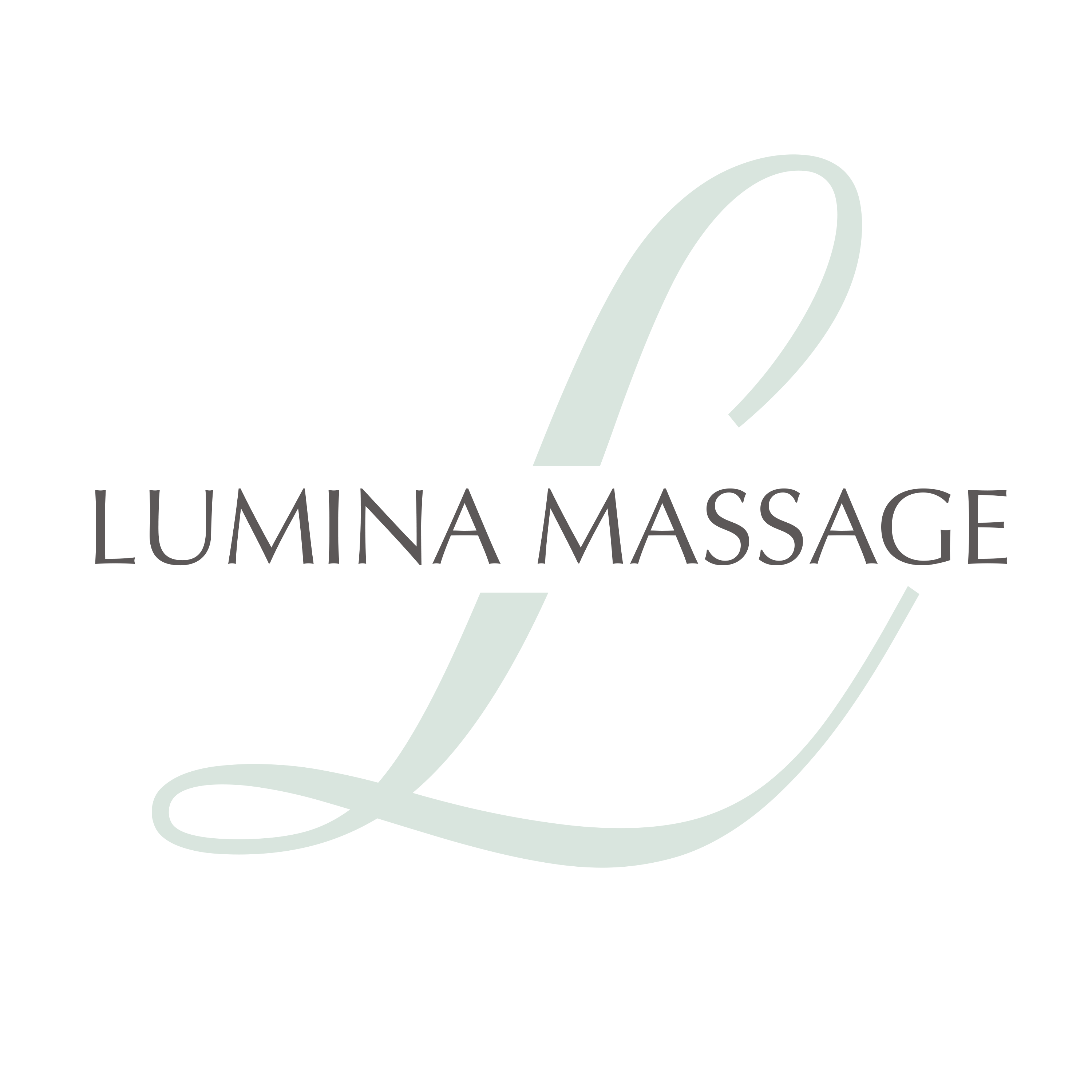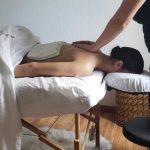“I Don’t Like Massage”
“I could never be a Massage Therapist…gross” As a professional massage therapist, I have literally heard this phrase come out from the mouths of friends, colleagues and loved ones. It’s a perplexing idea to me to hate massage but I completely respect the opinion of some that would rather reserve touch for people they are closest to.
(Disclaimer: there are specific conditions such as haphephobia which is an intense fear of being touched. If you feel genuine distress when being touched then booking a massage is not in your best interest. However, if you experience manageable levels of anxiety when receiving touch and would like to explore massage as a way of additional therapy, we encourage it with the guidance of a mental health professional or physician).
My first experience with a person that hated massage was a co-worker. We got along fabulously and she was very dear to me but truly hated to be touched. We would have a good laugh about it because she was an academic administrator for a trade school that taught massage!
There is nothing more irritating that someone that crosses your personal boundaries and starts massaging you without permission. It’s invasive and uncomfortable. Then there are those, that really never grew up with a nurturing touch so their brain is inexperienced with safe touch. In this post, I’ll discuss some of the most common complaints that I’ve heard from people when receiving a massage.
The Dreaded Face Cradle
Yep, that’s right, most people hate this thing, including me and I’ll tell you why. The face cradle, with its alluring, deceptive name is an attachment at the end of a therapy table that holds up your head. Simple right? It’s really for the benefit of the therapist to access the neck muscles and the upper trapezius. The problem is that it’s terribly uncomfortable to put that much pressure on your face. After about 15 minutes, you’re annoyed with this thing and most clients I know, simply put up with it during the massage. My outspoken clients relay this message of anti-cradle to me before they hop on my table. Kudos to them for speaking up, most don’t though. If I have even a hint of dissatisfaction with this piece of equipment, I simply ask my client to scoot down towards their feet and turn their head to the side. I work their legs and lower back while gently reminding them to turn their head every 5 minutes to avoid a muscle cramp. By the time I get to their neck and shoulders, the face cradle is much more bearable and the massage much more pleasurable. The only time I don’t offer this is if they have severe neck tension and simply cannot turn their head to the side, in this case I work mostly face up.
“I’m extremely ticklish”
There are those people that simply have an overly sensitive nervous system and I can relate. Their peripheral nervous system is highly receptive to stimulus and it is a valid concern. Some people can’t stand being on their back too long because it makes their muscles sore. Adding too much pressure to what therapists consider normal is too intense and increases their stress level. This can make a massage a horrible experience. In this case, a qualified therapist should always adjust their pressure accordingly no matter how strange it might feel to them. Some people need a very light touch, that’s all they can stand and that’s OK. If they’re ticklish, compression techniques work great compared to effleurage and a slower pace is helpful as well. Over time, the nerves will adjust to touch and the ticklish sensation will decrease.
“I hate strangers touching me”
I once had a friend that suffered from chronic stress but it took two years before she allowed me to give her a massage. Once she began having massage treatments, she was so happy and felt the health benefits right away. There’s no point in trying to force others to get a massage, sometimes they need to get to know the therapist well before they allow you to touch them and that’s ok. The best advice to give to this type of person is to find a Massage Therapist you like. Someone that is educated and competent in their profession. Take the time to know them, follow their content online and ask them questions. If you get a good vibe, go for it. Start with a 30 minute session with clothes on, just to get a feel for their work. The average person recognizes a good touch in the first 5 minutes of a massage.
“I’ve never gotten a professional massage”
Well, you’ve gotta help me out here. If you’re idea of “massage” consists of your boyfriend pummeling your back muscles then I’m sorry to inform you that you’ve been missing out. Massage is truly an art form. Much like experiencing fine cuisine or a watching a professional dancer, it’s a marvel what can come from the hands of a skilled Massage Therapist. Please don’t judge massage by what you’ve received from an untrained person that might have caused pain and or left you sore. My tip to you is to get a personal reference. Ask around for a qualified therapist that many people love and trust. Maybe their touch will be great for you, maybe it won’t but it’s a worthy investment in your health to find a very good Massage Therapist in your community.
Intrusion of Personal Space
If you have a difficult time relaxing then I encourage you to explore what you define as “intrusion” and work within those boundaries in massage. One of the biggest mistakes people make during a massage is not speaking up about what’s too much for them and what’s not. A professional therapist is not going to get offended and it would be a red flag if they do. Building trust is a big deal within a client to therapist relationship and is not to be taken lightly. Give yourself time to explore, for example maybe the first time , you might not enjoy a scalp massage but the next time you will. There are so many health benefits to massage that it would be a shame to not see which techniques are a good fit for you. Work with a therapist that understands and respects your personal boundaries.
“My Therapists Talks the Whole Time”
Here’s a suggested phrase for that: “hi (name of therapist) I’m so- looking forward to this, I really need some peace and quiet during this session.” Some Massage Therapists won’t know what you’re talking about if you are hinting. I’ve even had people say “I really would rather not talk during the massage today” Aye aye captain! There’s no need to apologize or give lengthy excuses. Your tone can be polite when sending your message across! It’s all about diplomacy and a professional Massage Therapist will be happy to oblige. If those don’t work try this, “I’d love to catch up but can we wait until after the massage is over? ” This will help your Massage Therapist in on what your preference is with kindness. Just a side note, sometimes I love talking during my massage and sometimes I don’t, both are OK. At times, therapists are only breaking the ice and building rapport. It’s also nice for us to know who we are working on but there may be more opportunities for that in the future.
“I get bored just laying there”
When this is the case, I recommend a massage that involves a lot of moderate to fast paced but passive movement like Thai, Sports or Abyanga Massage. Thai massage includes a significant amount of stretching and twisting in different poses. It’s invigorating and deeply relaxing at the same time which is ideal for those people that get bored of the traditional ways of relaxing. Sports Massage is vigorous and fast paced which keeps you alert and Abyanga is also fast-paced but light and rhythmic with it’s pressure. All these styles are invigorating.
To summarize, my hope is that you’ll give massage therapy a try and find a therapist you have an awesome connection with. As we mentioned earlier, we are sensitive to those that are touch avoidant due to a repressed childhood experience or trauma from sexual abuse in past relationships. If you crave human touch but have difficulty receiving it, consider massage as a compliment alongside talk therapy as you heal from the past. Re-association of touch in a positive light has helped many overcome debilitating social difficulties.



